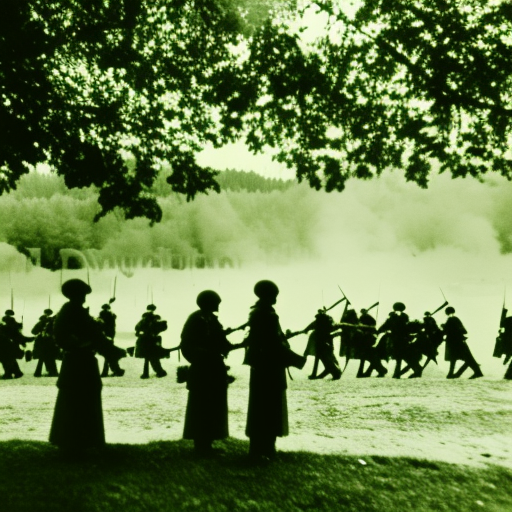The Balkan Wars
The Balkan Wars were a series of conflicts that took place in the Balkan Peninsula between 1912 and 1913. These wars were fought by several Balkan states, including Serbia, Montenegro, Greece, and Bulgaria, against the Ottoman Empire. The main objective of the Balkan states was to gain independence and expand their territories at the expense of the declining Ottoman Empire.
First Balkan War (1912-1913)
The First Balkan War began on October 8, 1912, when Montenegro declared war on the Ottoman Empire. The other Balkan states quickly joined the conflict, forming the Balkan League. The alliance aimed to liberate the Balkan territories still under Ottoman control.
The Balkan League forces achieved remarkable success in the early stages of the war. They swiftly captured most of the Ottoman territories in the Balkans, including Macedonia, Kosovo, and parts of Thrace. The Ottoman Empire was severely weakened, and its control over the region was significantly diminished.
However, tensions within the Balkan League soon emerged. Disputes over the division of captured territories led to conflicts between the alliance members. Bulgaria, feeling shortchanged, attacked its former allies, Serbia and Greece, in June 1913. This marked the beginning of the Second Balkan War.
Second Balkan War (1913)
The Second Balkan War was fought between Bulgaria on one side and Serbia, Greece, Montenegro, and Romania on the other. The conflict lasted from June 29 to August 10, 1913.
The alliance of Serbia, Greece, Montenegro, and Romania, known as the Balkan League, quickly overwhelmed Bulgaria. The Bulgarian forces were pushed back, and their territorial gains from the First Balkan War were reversed. The Treaty of Bucharest, signed on August 10, 1913, marked the end of the Second Balkan War.
Consequences
The Balkan Wars had significant consequences for the region and Europe as a whole. The Ottoman Empire, already weakened by internal strife and external pressures, suffered a severe blow. The wars accelerated its decline and paved the way for the Turkish War of Independence and the eventual establishment of modern Turkey.
The Balkan states, on the other hand, experienced mixed outcomes. While they achieved some of their territorial objectives, the wars also created new tensions and rivalries among them. The unresolved territorial disputes and ethnic tensions in the region would later contribute to the outbreak of World War I.
The Balkan Wars also had a profound impact on the Great Powers of Europe. The conflicts highlighted the instability and volatility of the Balkans, leading to increased involvement and intervention by major European powers. The rivalries and alliances formed during this period would shape the geopolitical landscape and contribute to the tensions that ultimately led to World War I.
In conclusion, the Balkan Wars were a series of conflicts fought by several Balkan states against the Ottoman Empire between 1912 and 1913. The wars resulted in the liberation of much of the Balkans from Ottoman control but also led to new tensions and rivalries among the Balkan states. The conflicts had significant consequences for the region and Europe as a whole, contributing to the decline of the Ottoman Empire and setting the stage for future conflicts.












